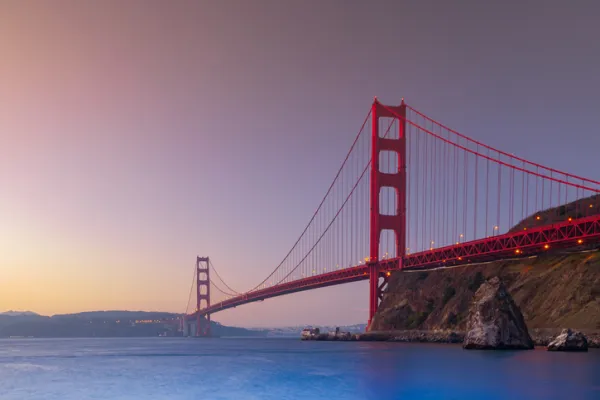In 1991 Argentina's president, Carlos Saúl Menem, charged Domingo Cavallo with saving the country's troubled economy.
By Jenny Anderson
April 2001
Institutional Investor Magazine
In 1991 Argentina's president, Carlos Saúl Menem, charged Domingo Cavallo with saving the country's troubled economy. A decade later a different president, Fernando de la Rúa, is hoping for a repeat performance from the feisty, Harvard-educated economist.
Cavallo, 54, is de la Rúa's third economy minister - and the president's last chance to clean up a political and economic mess of his own creation. Cavallo's two predecessors failed: Centrist José Luis Machinea didn't do enough to activate the flagging economy; ultraorthodox Ricardo López Murphy threatened to do too much and was fired last month after only two weeks on the job.
President de la Rúa - and Argentineans - are hoping Cavallo can get it right. Never one to shirk a challenge (in 1997 he established a political party named Action for the Republic), he's already shifted into high gear. Late last month, less than a week after taking office, Cavallo won congressional approval for a financial transactions tax that J.P. Morgan Chase & Co. estimates will raise between $3 billion and $4 billion annually.
De la Rúa has given Cavallo authority to eliminate tariffs on capital imports to stimulate local production and to double tariffs on consumer imports, to 35 percent. To curb Argentina's chronic tax evasion, Cavallo has mandated that every transaction above $1,000 be executed through a bank or with a check.
In a rare sign of unity, Congress has also awarded Cavallo special powers for one year to independently reform the tax system, lower the budget deficit and overhaul bloated state agencies. He hopes to trim the deficit by $3 billion and lower local production costs by 20 percent this year. The expanded powers carry some restrictions: Cavallo will not be able to privatize state enterprises, such as Banco de la Nación Argentina, or tamper with state workers' jobs or pensions. And he's not allowed to touch convertibility, the 1-to-1 peg of the peso to the dollar that he implemented in 1991 to stave off hyperinflation.
"We're trying a comprehensive approach, and we are confident it will work," says Guillermo Mondino, chief of Cavallo's economy cabinet. "We're planning to attack the economy quickly and on many fronts to change conditions locally - to lower the cost of capital, reduce uncertainty and reduce the fiscal burden that has created a lack of success previously."
Cavallo has made an all-out effort to regain the confidence of foreign investors and Argentineans. "He is the last, best hope for Argentina," says Chip Brown, head of fixed-income and economic research at Banco Santander Central Hispano. "His trump card is that there is no one else."
The task is enormous. Argentina has been mired in recession for three years, racked by political turmoil since de la Rúa took office in December 1999, eclipsed in trade by its booming neighbor Brazil, buffeted by a strong dollar and - even more than most emerging markets - squeezed by the increased financing costs that have followed the economic crises in Asia, Mexico, Russia, Brazil and Turkey. Argentina's unemployment hovers at about 15 percent, and the government has announced that the first-quarter budget deficit will be $740 million higher than the targeted $2.1 billion. Officials have to come up with $14.3 billion to pay off debt obligations due this year, but de la Rúa's political bumbling has caused interest rates to soar, making debt more expensive and exacerbating the recession.
On March 26 Standard & Poor's downgraded Argentina's debt ratings for the third time in four months, to four notches below investment grade. A day later Moody's Investor Service followed suit, citing concern about the country's ability to stimulate its economy and meet its debt obligations.
How did Argentina get into such a predicament? Cavallo deserves some of the blame. In 1991, when the country was beset by hyperinflation and unemployment, he introduced a currency board that pegged the peso to the dollar and backed every peso in circulation with an equivalent dollar in reserves. His plan worked. Foreign investment poured in, and GDP grew an average 8.2 percent between 1991 and 1994. But it made Argentina's exports more expensive than those of rivals like Brazil. "It's hard to compete when you're tied to the strongest currency in the world," says Geoffrey Dennis, Latin America equity strategist at Salomon Smith Barney.
So much for the economic mess. Politics present problems of their own. "There is a power vacuum in Argentina right now," says Alejandro Reynal, chairman and CEO of Argentinean investment bank MBA Banco de Inversiones. "Most countries call it anarchy. The president changes his mind so many times on the same subject that we lack any direction."
De la Rúa campaigned in 1999 on a platform of fiscal discipline: Tightening the country's purse strings would bring down interest rates and ignite spending. Or so he said. He put centrist Machinea in charge of the economy. Machinea raised taxes, cut spending and predicted that Argentina would grow at least 4 percent in 2000. But the tax hike caused the economy - just starting to show signs of life - to swoon.
Five months later, when Machinea slashed public workers' pensions and wages, protesters took to the streets. Fights escalated within the ruling Alianza coalition between the left-leaning Frepaso party and the president's centrist Radical party, and vice president Carlos Alvarez resigned in October. In December a beleaguered Machinea helped to engineer a $40 billion International Monetary Fund bailout, causing stocks to soar 28 percent in January and yields on benchmark floating-rate bonds to fall to 10 percent (from a mid-November peak of 17 percent). But then Turkey - another IMF-bailout recipient - devalued, and the floor collapsed under Argentina as well.
Machinea resigned, and deficit hawk López Murphy came in. He announced a draconian package of $4.5 billion in tax hikes and spending cuts. Union members and students took to the streets, and four ministers and two vice ministers from the Frepaso side of the Alianza resigned. "There was no stomach left for that kind of political package," says Salomon's Dennis.
Out went López Murphy, and in came the bald, temperamental and decisive Cavallo. As Menem's economy minister from 1991-'96, he spearheaded reforms, including peso convertibility and privatization of the state oil company and utilities. "He is a silver bullet. He can succeed where others have failed," says Alberto Ades, chief Latin America currency strategist at Goldman, Sachs & Co.
He'll need to. If Cavallo fails to reactivate the economy, the country will have to default or devalue. Because most of Argentina's contracts are written in dollars, devaluation would be devastating. The more likely option is default. Though less calamitous than devaluation, it would still be extremely messy and, given Argentina's enormous debt load, could create havoc in emerging markets: Argentina is the biggest country in the J.P. Morgan emerging-markets bond index, representing 20.4 percent of the total (compared with 6.3 percent for Russia, whose 1998 default sent emerging markets into a tailspin).
Considered a superb negotiator, Cavallo has for now tempered the political fallout from the crisis by building a ragtag coalition of supporters. He plainly has the backing of international markets: A relief rally pushed the Merval stock index up 13 percent at the end of March from a low of 400 at mid-month, and yields on dollar-denominated bonds have edged down to 14 percent after again hitting 17 percent in late March.
Cavallo has every incentive to succeed: He wants to win the presidency in 2003. (He ran against de la Rúa in 1999 and came in a very distant third, then lost a campaign to be mayor of Buenos Aires.) His chances for the presidency will be much better if he can save Argentina now.
But as ever, Cavallo may be his own worst enemy. During his first stint as economy minister, he was known to storm out of cabinet meetings and demonize his opponents to the media. When Menem fired him in 1996, Cavallo went to Congress and delivered a seven-hour speech decrying corruption in the executive office.
"The threat here is that he throws a tantrum and resigns," says John Welch, chief Latin America economist at Barclays Capital.
Already, Cavallo has told legislators that if they do not support him, he will leave, and the blame will be theirs - a familiar tactic. "If Congress doesn't give us the powers we're seeking, they'll be responsible when we run out of money," he said at a press conference on his first day back at the economy ministry.
A divided Congress is so far giving Cavallo the tools he wants. Revenues are flowing from his financial transactions tax, which took effect on April 3, and that should help him meet budget targets. But whether he can revive spending in a stagnant economy and keep his political coalition intact is another matter. "We don't know how de la Rúa will react to having a prime minister in his economy ministry post," says Banco Santander's Brown.
On a recent trip to Spain to reassure investors, Cavallo emphasized that he is not out to step on de la Rúa's toes: "I came to Spain to give assurances that Argentina will overcome this crisis," he said. "President de la Rúa will build a cabinet able to create not only a stable economy but a fully competitive one, through this new competitive plan we are proposing." Cavallo also made it clear that he would consider linking the peso to a basket of currencies rather than to the dollar.
So far it's an innovative, defiant and yet diplomatic start from an audacious politician who's been handed an immense amount of power.
Now he's just got to hope for a miracle.





